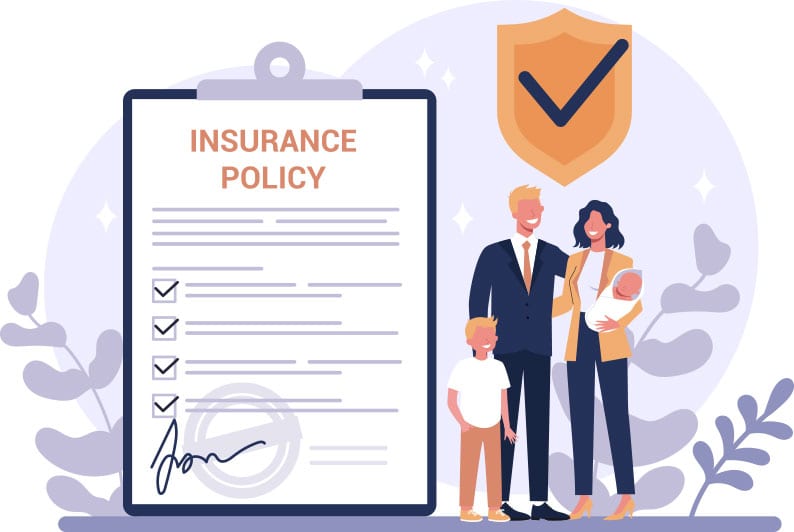
10 Reasons You Don’t Need Health Insurance
You may be skeptical of whether health insurance is really necessary for you. That's understandable. If you're young, healthy, don't spend a lot on healthcare now, why is it worth it? If you're considering whether you need health insurance we're willing to bet at least one of the following reasons has crossed your mind. But how do they measure up in the real world?
1. I don't take drugs
That's fantastic. Hopefully, that won't change. However, most people who require medication didn't plan on needing it. While some conditions can be managed holistically through lifestyle changes, others cannot, and the cost for prescription drugs in Canada is rapidly rising. New specialty medications costing over $10 000 per year make up 30% of overall drug spend by working-age people1. Of those meds, most are for chronic, ongoing conditions. We bet you can think of better ways to spend your money.
2. I'm healthy
Again, that's great. You likely have a combination of genetics and your own effort to thank. Keep up the good work. Despite what you might have heard about insurance people, we don't like to be all doom and gloom, but we've seen enough to know that even with your best efforts, good health is not guaranteed.
3. I'm young
Oh to be young! It's true that the likelihood of serious physical illness is lower at a younger age. And you're more likely to recover well if you're injured. But adolescents and young adults also have higher prevalence of mental illness. One in two Canadians have had or will have a mental illness by the time they reach 402. It's a good idea to have support in place. Plus, insurance rates are lower for most plans the younger you are because you're considered lower risk. (Health Plus plans have equal low rates across all ages but we're special) We hate to break it to you, but you're not getting any younger.
4. I'm active
Physical activity is repeatedly shown to have many health benefits, from reducing the likelihood of heart disease to stress management. That said, if you strain your knee training for a marathon or break a bone hang gliding, you likely want to get back to those activities as quickly and pain-free as possible. Registered therapists paid for by your insurance can help with that.
5. I don't spend that much now.
It's reasonable to be concerned about spending money you might not get back. But, insurance isn't a chequing account that you put money in and take money out of to pay your bills. It's a safety net that protects you against risk. While the chance of break ins, floods, and fire are all relatively low, you still insure your home or apartment because you value your belongings and know the cost of replacement would be both financially and emotionally taxing. Your personal health is the same.
6. Provincial coverage will pay
While we're lucky to have a lot covered by provincial healthcare plans, unfortunately there's still a lot lacking. The bills for out-of-hospital medication, rehabilitation and care are completely up to you. Coverage also varies from province to province, which means that even if you're travelling within Canada, you may be surprised with a bill you wouldn't expect at home.
7. It doesn't cover pre-existing conditions
It is true that medically underwritten plans (plans with a health questionnaire to apply) require evidence of good health and may deny or limit coverage due to a pre-existing health issue. However, there are other options available. Depending on your condition, you may still qualify for coverage with an adjusted rate, or you can apply for a guaranteed acceptance plan. These 'no medical questions asked' plans will automatically cover a portion of your expenses, regardless of what you're spending now.
8. I'll get benefits when I find a new job/career
Getting benefits through an employer is ideal. Plans typically offer good coverage and your employer foots at least a portion of the bill. However, with the rise of contract positions, benefits are no longer guaranteed. Even if your new gig comes with insurance, companies often require a waiting period of at least 3 months before you're eligible. Personal health plans can always be cancelled if your new job comes with benefits, or once they kick in. Meanwhile, you're protected.
9. I'm rich
Lucky you. Any secrets to share? If you're independently wealthy, and can afford to self-insure, insurance might not be necessary for you. Just be sure you have a healthy enough emergency fund to get you through even the worst-case scenario.
10. It won't happen to me
If you have a crystal ball, can we have a peek too? Of course, you don't want to think of a health crisis or serious injury befalling you or a loved one, no one does. But because you can't be 100 percent confident, why not prepare?
The insurance industry often gets a bad rep for pushing sales. We aren't going to do that. Our job is simply to make sure you understand your options, including the risks of being uninsured. The choice is always up to you.
Sources:
1. Telus Health 2020 Drug Data Trends & National Benchmark Report
2. The Canadian Alliance on Mental Illness and Mental Health










